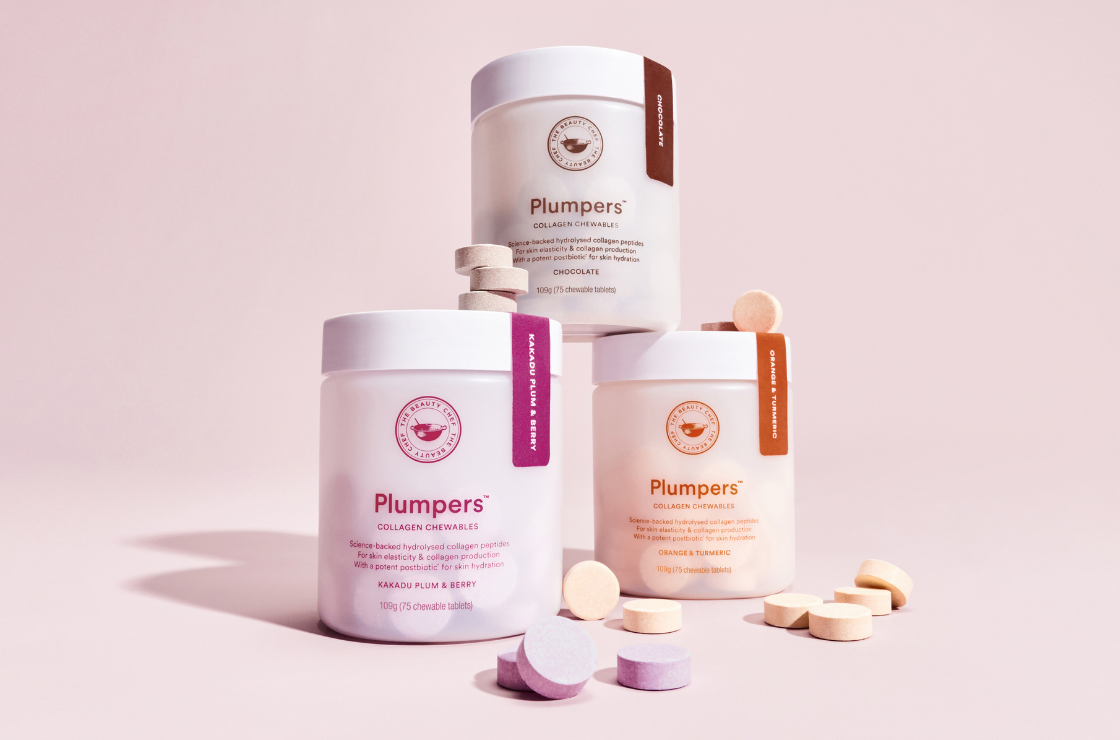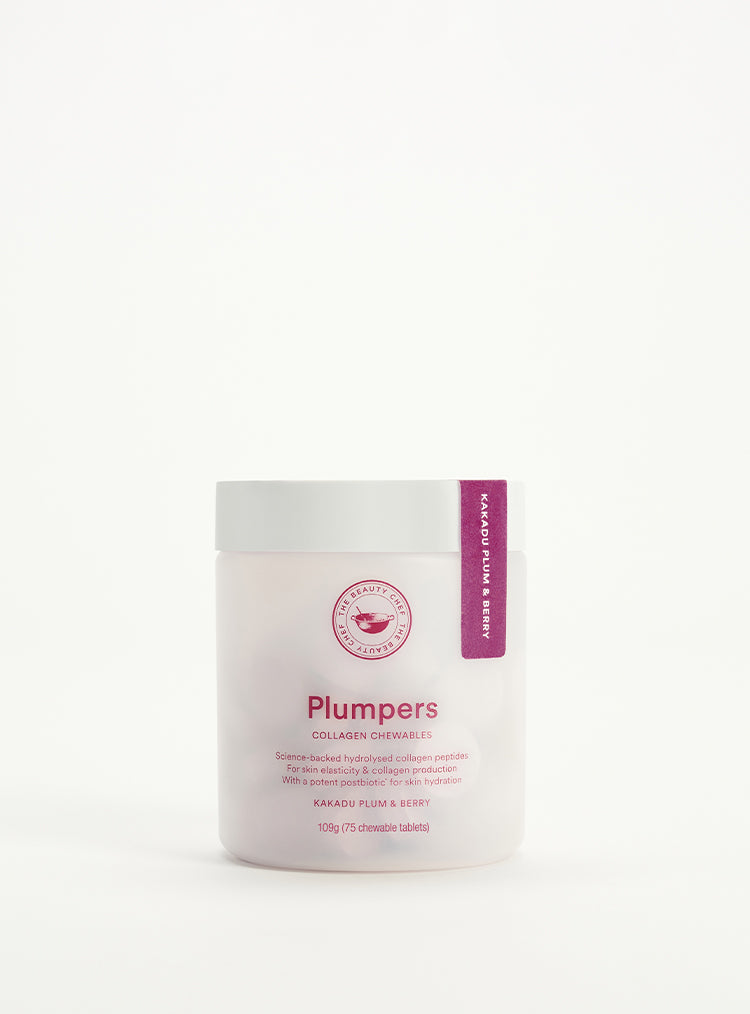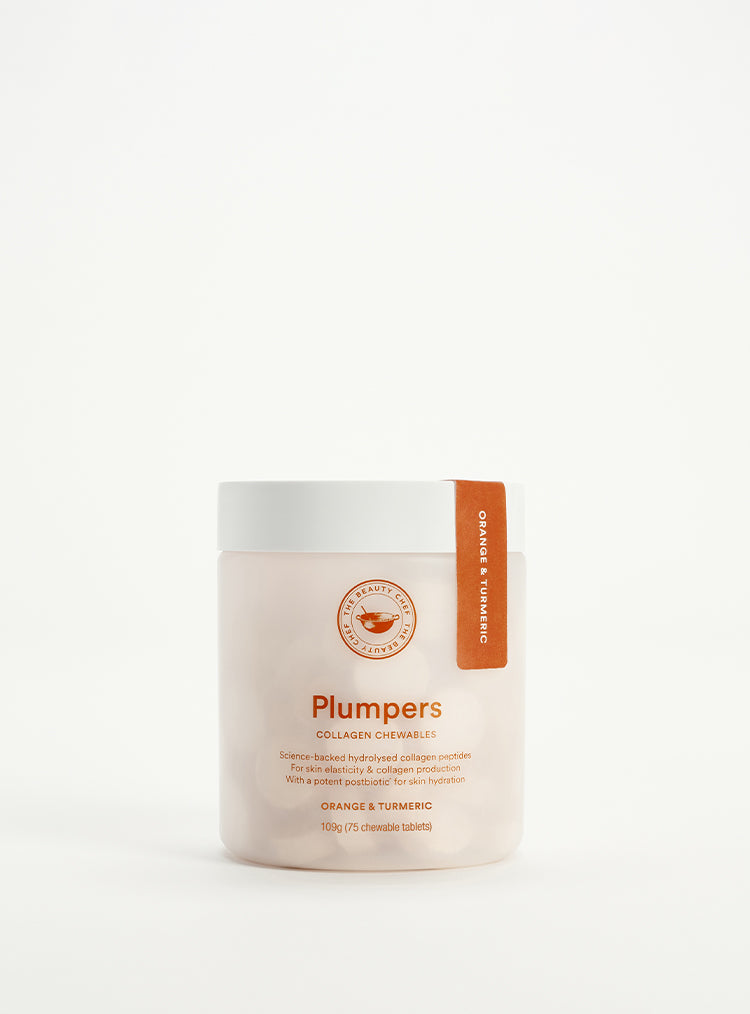
As we age, collagen diminishes, contributing to visible signs of ageing. From your 20s through to your 30s, 40s and into your 50s and beyond, this blog aims to shed light on the significance of collagen in maintaining the skin’s integrity at any age. The structural protein plays a key part when it comes to skin elasticity, firmness and hydration at each stage of life. Here is your guide to the skincare, lifestyle and supplement support to boost collagen levels throughout your life.
Collagen in your 20s
To support collagen production in your 20s, establishing a proactive skincare routine and a healthy lifestyle is a great place to start. A balanced diet rich in collagen-boosting nutrients, such as vitamin C and amino acids, can improve the body's ability to generate and preserve collagen. Sun protection and avoiding harmful habits like smoking can further safeguard collagen integrity, establishing a strong foundation for skin health.
Collagen in your 30s
Maintaining and stimulating collagen production in your 30s is important in preserving youthful skin characteristics. A good skincare regimen with collagen-boosting ingredients (such as peptides and retinoids) and a nutrient-rich diet, plus proper hydration and sun protection can aid in reducing the visible effects of collagen reduction.
Collagen in your 40s
Your 40s is when the decline in collagen production becomes more pronounced, contributing to the emergence of deeper wrinkles and a reduction in skin firmness and hydration. This leads to increased dryness and reduced elasticity and resilience.
To address the challenges posed by declining collagen in your 40s, a targeted skincare approach is essential. Incorporating collagen-boosting ingredients such as hyaluronic acid, peptides and antioxidants into your routine can help replenish and stimulate collagen production. Maintaining healthy lifestyle habits and sun protection remain integral in supporting skin health.
Collagen in your 50s & beyond
In your 50s and beyond, a lack collagen production becomes more noticeable, exacerbating the visible signs of ageing, including skin laxity, wrinkles and a loss of overall firmness. Focus on supporting and stimulating collagen production to bring back your bounce. Consistently incorporate collagen-boosting ingredients, such as peptides and hyaluronic acid, into your skincare routine to help rejuvenate the skin, while prioritising a nutrient-rich diet, proper hydration, and diligent sun protection can contribute significantly to enhancing the overall quality of the skin.
When to start taking collagen
An easy way to manage collagen loss and promote overall skin health is by taking collagen supplements. Evidence from several recent studies (including this 2022 study published in Dermatology Practical & Conceptual) suggests that collagen supplements improve skin moisture, elasticity and hydration while reducing wrinkles and roughness of the skin.
You might be wondering, ‘Should I be taking collagen?’ This will depend on your personal skin and health goals and what works for you. Overall, collagen supplements are an easy way to support collagen production, skin elasticity and hydration. Available in powders, liquids, chewables tablets and more, collagen supplements can be easily incorporated into most peoples’ routines.
Consistency is key for optimal results, and choosing a time that aligns with your daily habits can help establish a routine that supports collagen replenishment over the long term.
Signs you need more collagen
Collagen loss may first be noticeable with the emergence of fine lines and wrinkles, reduced skin elasticity or joint stiffness. Other signs may include sagging skin, slower wound healing, brittle nails, hair thinning and digestive issues. Pay attention to these signs, especially as you age, as they may suggest a need for additional collagen support.
Consulting with a healthcare professional can help you determine if collagen supplementation could help address your symptoms and support general health.
How long collagen can take to work
The time it takes for collagen supplements to take effect will depend on the individual’s age, lifestyle, and specific skin conditions. Some may notice improvements early on, while others may see visible results after several months. Consistency with collagen supplementation is key for optimal results.
For a comprehensive guide on collagen supplementation and its impacts, explore our blog, 'How long does it take for collagen to work?'.
Collagen throughout the years
Collagen gives skin its elasticity and firmness, declining with age. With mounting evidence to support its efficacy, collagen-based supplements have become an easy way to support collagen loss, fine lines, wrinkles and skin laxity.
Available in different formulations, collagen supplements can easily be incorporated into your daily routine. Whether you’re in your 20s and just starting to notice fine lines or you’re in your 50s and experiencing lack of volume, collagen supplementation is an effective way to increase collagen production in the skin.
At The Beauty Chef, we offer a range of collagen supplements to support your skin's bounce and pep. Whether you prefer a scoop of our DEEP MARINE COLLAGEN™ Inner Beauty Support in your morning smoothie, a splash of our berry-flavoured COLLAGEN™ Inner Beauty Boost with a cold drink, or our on-the-go Plumpers™ anytime, anywhere—enjoy the benefits of collagen your way.




